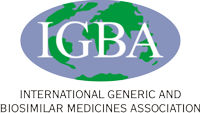




On 9th March, IFPMA launched jointly with EFPIA and EBE a position paper entitled Considerations for physicians on switching decisions regarding biosimilars. Physician-led switching of biological medicines is a well-known medical practice. Although data on the frequency of switching in clinical practice is scarce, no evidence from clinical trials or post marketing surveillance data has found that switching to or from different biotherapeutics leads to safety concerns[2].
Given the fact that, from the regulatory and scientific viewpoints, a biosimilar medicine is a biological medicine containing a highly similar version of the same active substance as its reference product and also that the medical community is keen to express its social responsibility as well as support increased access to biological treatments, it is consequently surprising that the encouragement of physicians to switch from an original biological product to any of its biosimilar products (or vice-versa) is challenged.
It is also surprising from a scientific perspective: biological product manufacturers make frequent changes to manufacturing processes both during development and after approval which leads to highly similar versions of the same product over time, after having performed a thorough comparability exercise. This approach is outlined in the ICH guideline Q5E: “The demonstration of comparability does not necessarily mean that the quality attributes of the pre-change and post-change product are identical, but that they are highly similar and that the existing knowledge is sufficiently predictive to ensure that any differences in quality attributes have no adverse impact upon safety or efficacy of the drug product.”[3]
These scientific principles have been used successfully by industry and regulators for several decades to ensure close similarity of a biological product before and after a manufacturing change, and have therefore formed the basis for establishing the concept of biosimilarity. Furthermore, “when comparability has been demonstrated, the new version can be introduced to the market without informing prescribers, pharmacists, or patients.”1
We consequently call upon all stakeholders to maintain trust in our medical communities and regulators in the context of biosimilar medicines and in particular in their risk evaluation of a switch from a reference medicine to a biosimilar medicine or vice-versa. EU regulators, who have the longest global experience with biosimilar medicines use (over 10 years) concluded recently that “a switch between comparable versions of the same active substance approved in accordance with EU legislation is not expected to trigger or enhance immunogenicity”1, and that “switching patients from the original to a biosimilar medicine or vice versa can be considered safe”1 Physician-led switching is indeed fundamental for unlocking the full potential of biosimilar medicines and is supported by regulators and medical societies throughout Europe.[4]
Adrian van den Hoven, Chair of the International Generic and Biosimilar Medicines Association (IGBA), commented “We trust that this positive 10 year European experience with biosimilar medicines gives hope to patients around the world that improved access to biological medicines is possible.”
About IGBA
The International Generic and Biosimilar Medicines Association (IGBA) was founded as IGPA (International Generic Pharmaceutical Alliance) in March 1997 to strengthen cooperation between associations representing manufacturers of generic medicines. Its membership includes Medicines for Europe (Europe), the CGPA (Canada), the AAM (Association for Accessible Medicines), the JAPM (Jordan), the NAPM (South Africa), the TGPA (Taiwan) and the JGA (Japan) while the associations from Australia (GBMA), Brazil (ProGenericos) and Mexico (AMEGI) are Associate Members. The IGBA is at the forefront of stimulating competitiveness and innovation in the pharmaceutical sector by providing high quality pro-competitive medicines to millions of patients around the world. Through its constituent member associations, the IGBA maintains constant dialogue with government authorities (including the European Commission for Europe) as well as with international institutions such as WTO, WIPO and WHO. More information: www.igbamedicines.com
[1] Kurki P, et al. Interchangeability of Biosimilars: A European Perspective. BioDrugs. 2017 Jan 24. doi: 10.1007/s40259-017-0210-0
[2] Hans C. Ebbers et al. The safety of switching between therapeutic proteins. Expert Opin. Biol. Ther.2012
[3] ICH Q5E COMPARABILITY OF BIOTECHNOLOGICAL/BIOLOGICAL PRODUCTS SUBJECT TO CHANGES IN THEIR MANUFACTURING PROCESS
[4] Overview of positions on physician-led-switching